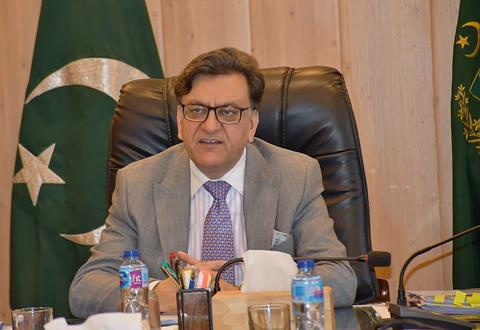
PAKISTAN: A four-pronged strategy for financial autonomy, governance and growth, private sector participation and leveraging technology at Pakistan Railways has been set out by Railways Board Chairman Syed Mazhar Ali Shah.
Financial Autonomy
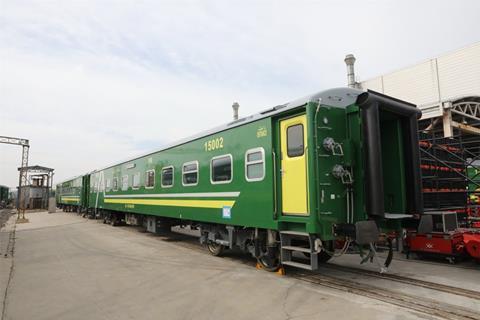
Shah said Pakistan Railways’ statutory position as a government department has led to an ‘identity crisis’ and discriminatory treatment.
To help address this, operations are to be reorganised to become more commercially viable and ’clean the railway balance sheet and allow the railway to focus on its core services’.
In particular, pension liabilities are to be transferred to the national budget, with railway subsidy reduced by an equal amount.
Pakistan Railway operates of 60% of its passenger services as a public service obligation, and Shah said the requirement to serve remote and marginalised regions without matching subsidies has constrained its financial health.
However, PR ‘remains committed to serving all segments of society across the nation’, and a method of calculating subsidies for PSO services is to be developed and implemented.
Improved governance and growth
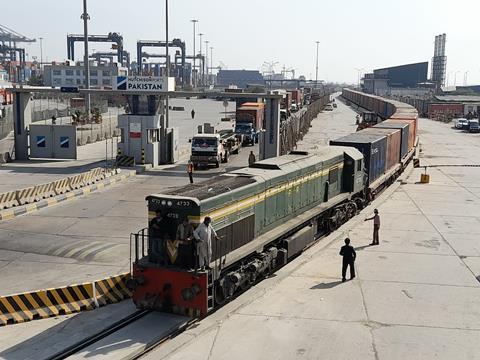
Cost-cutting measures which have been adopted include fuel and electricity consumption management, revenue optimisation and improved governance and procurement practices.
Plans include the introduction of IFRS-compliant accounting, organisational restructuring and contract-based recruitment. This is expected to bring efficiency gains of 20% to 25%.
There will also be a focus on upgrading and expanding the railways through federal development budget investments in vulnerable infrastructure, providing rail connectivity to the Thar coal fields and the Main Line 1 project to significantly upgrade the 1 700 km Karachi – Lahore – Peshawar corridor which forms the backbone of the rail network.
Shah said ML1 would ‘revolutionise’ logistics in Pakistan. ‘With ML1, we’re not just moving people and cargo efficiently; we’re connecting to local and regional markets, creating immense value’, he said.
Other requirements for enhancing freight services are investment in infrastructure and rolling stock; implementation of tracking and scheduling tools; optimising routes for efficiency; fostering public-private partnerships; and training staff to improve service quality.
Shah said ‘our workers are the heart of our operation, tirelessly working 24/7 to ensure safe, reliable and high-quality services. Their dedication and hard work are the pillars of our success.’
Private sector participation
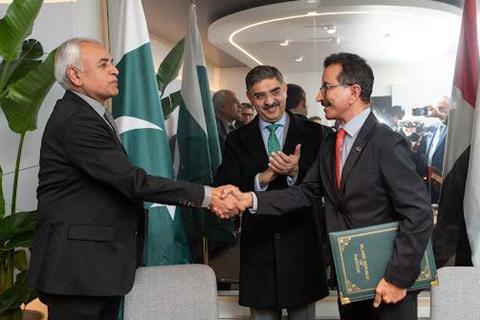
Private investment in passenger services, solar power, commercial use of railway land, and outsourcing of production facilities and maintenance are all envisaged.
Spending on infrastructure development could include DP World’s involvement in the proposed Karachi Port – Pipri dedicated freight corridor, the Quetta – Tafftan section of ML3, the proposed ML4 in the west of the country, and the Kohat – Thal – Sadda – Parachinar – Kharlachi line. This would be ‘a key link’ in the proposed Uzbekistan – Afghanistan – Pakistan railway.
Leveraging technology
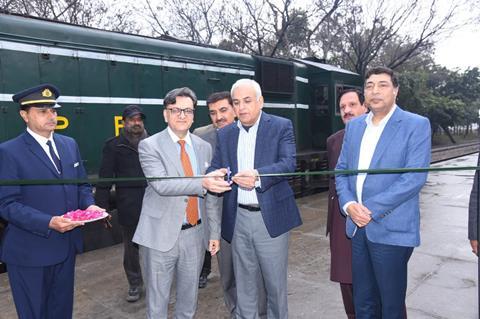
Pakistan Railways is implementing SAP enterprise resource planning software, and Shah said the Railway Automated Booking & Travel Assistance system is showing ‘encouraging results’ in providing a better customer experience.
An IoT-based locomotive fuel monitoring system was inaugurated at Margalla station in Islamabad on January 31.
Other plans include rolling stock tracking and mechanisation of track maintenance.
Embrace and promote rail
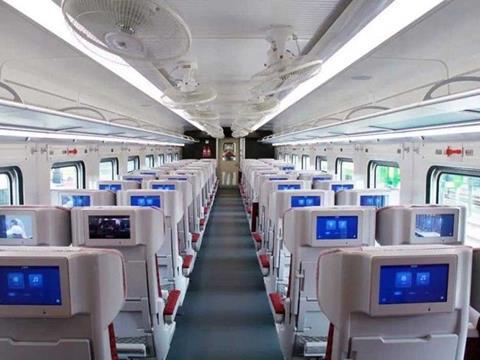
Shah said Pakistan requires an efficient and modern railway system which can effectively contribute to national economic growth and development.
He said the country has a ‘reasonable’ network of 8 000 route-km, but has not capitalised on its role as part of an integrated national transport network and rail currently has an 8% to 10% market share.
‘I wish Pakistan would embrace and promote rail-based transport system like other nations’, he said. ‘More environmentally friendly than any other form of transport, it can rival planes in speed, and more economical than even driving.’

















